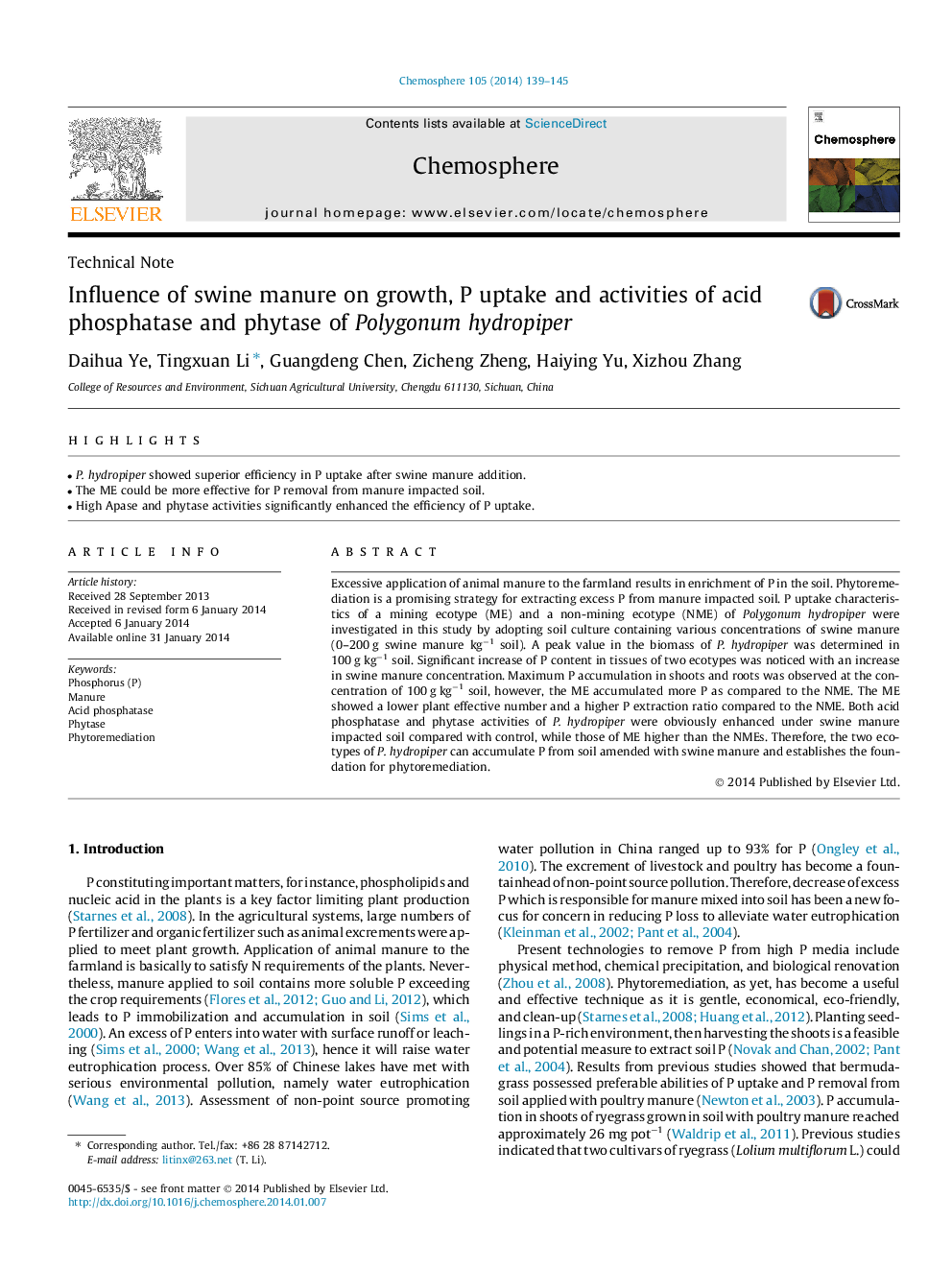| Article ID | Journal | Published Year | Pages | File Type |
|---|---|---|---|---|
| 4408891 | Chemosphere | 2014 | 7 Pages |
•P. hydropiper showed superior efficiency in P uptake after swine manure addition.•The ME could be more effective for P removal from manure impacted soil.•High Apase and phytase activities significantly enhanced the efficiency of P uptake.
Excessive application of animal manure to the farmland results in enrichment of P in the soil. Phytoremediation is a promising strategy for extracting excess P from manure impacted soil. P uptake characteristics of a mining ecotype (ME) and a non-mining ecotype (NME) of Polygonum hydropiper were investigated in this study by adopting soil culture containing various concentrations of swine manure (0–200 g swine manure kg−1 soil). A peak value in the biomass of P. hydropiper was determined in 100 g kg−1 soil. Significant increase of P content in tissues of two ecotypes was noticed with an increase in swine manure concentration. Maximum P accumulation in shoots and roots was observed at the concentration of 100 g kg−1 soil, however, the ME accumulated more P as compared to the NME. The ME showed a lower plant effective number and a higher P extraction ratio compared to the NME. Both acid phosphatase and phytase activities of P. hydropiper were obviously enhanced under swine manure impacted soil compared with control, while those of ME higher than the NMEs. Therefore, the two ecotypes of P. hydropiper can accumulate P from soil amended with swine manure and establishes the foundation for phytoremediation.
